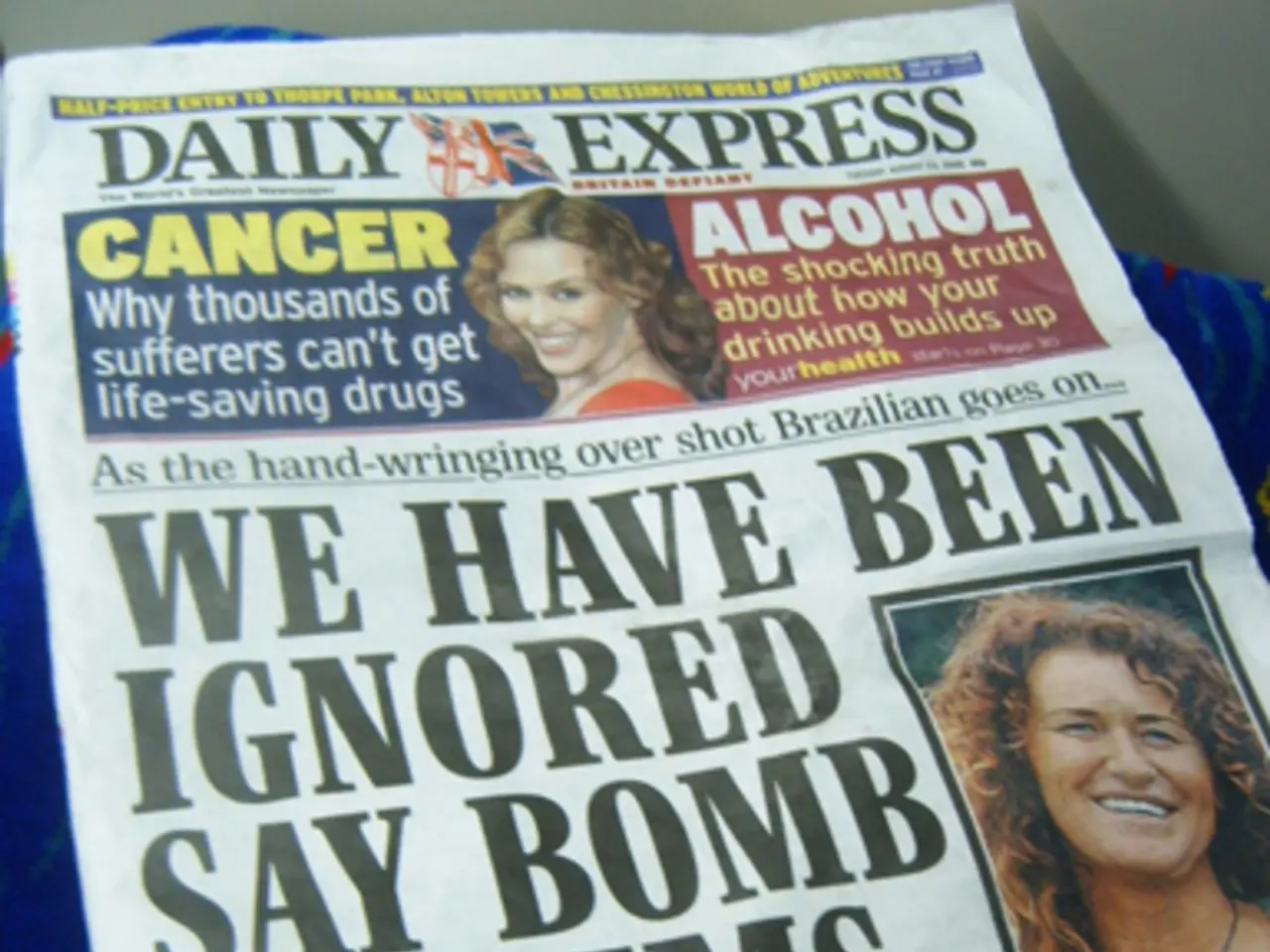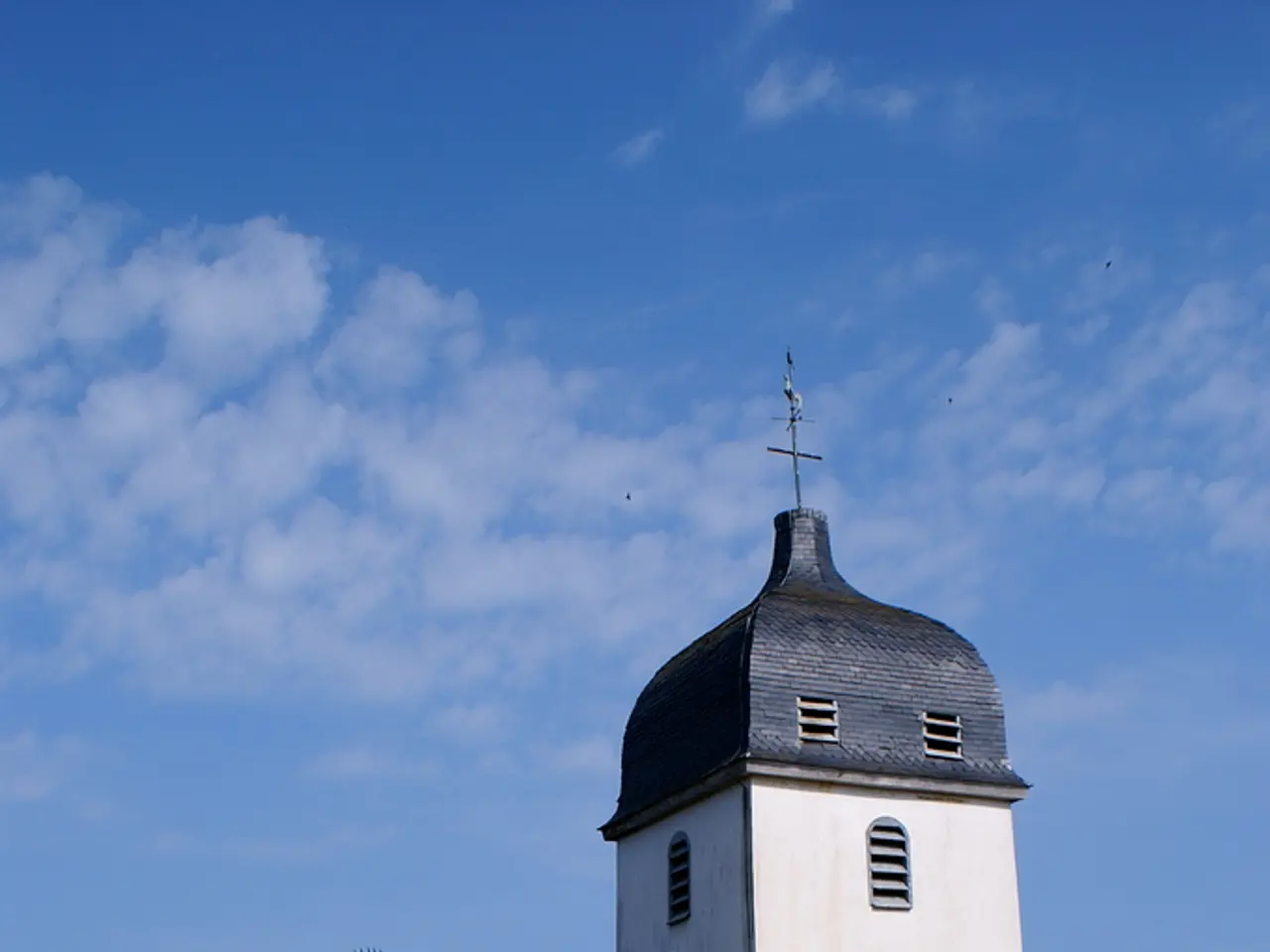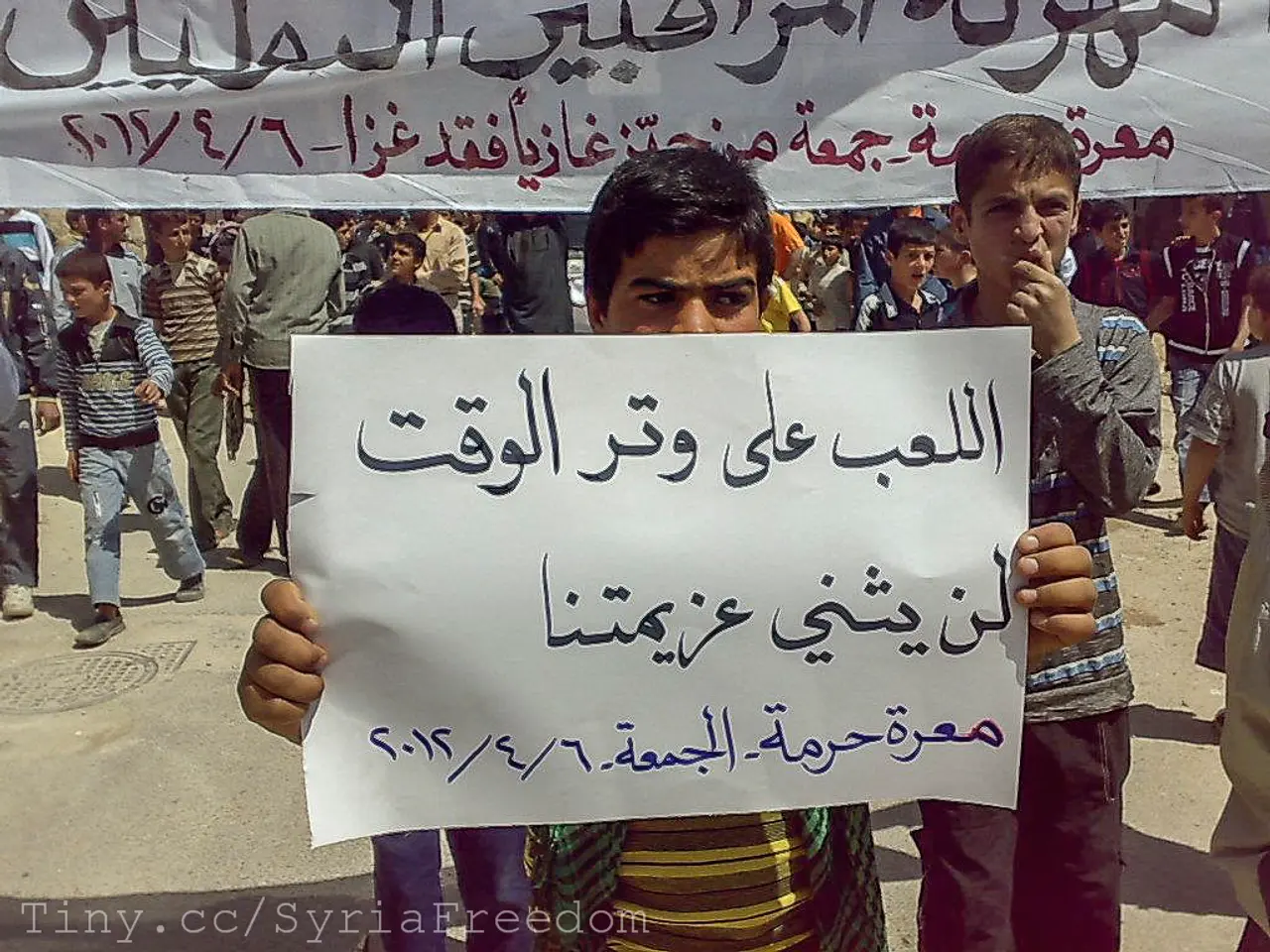"Greens politician Schreyer faces court verdict, compared to Jews in a novel metaphor"
Bernd Schreyer, a prominent German green politician, has faced legal consequences for a controversial tweet comparing green politics to the persecution of Jews during the Nazi era. This comparison is part of a broader debate about the limits of political critique, freedom of speech, and the appropriate remembrance of the Holocaust.
Background on Bernd Schreyer
Bernd Schreyer, co-founder of the Greens in Munich and Bavaria and former state chairman, has made headlines for his provocative statements equating environmental policies with the horrors of the Holocaust. Such comparisons are often met with controversy and serve as a focal point in discussions about the boundaries of political discourse.
Legal Context
In Germany, laws such as the Volksverhetzung law, aimed at upholding the memory of Holocaust victims and preventing misuse of historical atrocities in political rhetoric, are crucial. When individuals like Schreyer make comparisons perceived as equating or trivializing the genocide of Jews with modern political movements, they may face legal scrutiny. The courts assess whether such statements constitute defamation, trivialization, hate speech, or incitement.
Historical Significance
The Holocaust is universally recognized as a unique and unparalleled atrocity. Comparisons that equate contemporary issues to its horrors are highly sensitive and often controversial because they risk minimizing the scale or singularity of Nazi crimes. Politicians who invoke the Holocaust inappropriately can face backlash, not just legally but socially and politically, due to the strong cultural memory in Europe.
Broader Implications
The Schreyer case exemplifies ongoing tensions in democratic societies about how to engage with historical memory responsibly, especially in polarized political discourse. The conviction serves to establish jurisprudence on freedom of speech limits concerning Holocaust remembrance and reinforces the principle that while critique of contemporary politics is legitimate, invoking genocide comparisons carelessly or offensively can be subject to legal and social sanctions.
The debate encourages vigilance against the abuse of historical tragedies for political point-scoring or propaganda. Schreyer's case is a reminder of the need to navigate sensitive historical topics with care and respect in modern political discourse.
The Current Proceedings
The Bavarian Supreme Court has dismissed an appeal by Munich Green politician Bernd Schreyer against a conviction for incitement. The conviction is for a tweet made by Schreyer in June 2023, during a debate about the Building Energy Act. Schreyer's lawyer, former Green federal parliamentarian Jerzy Montag, criticized the decision as "incomprehensible" and problematic under constitutional law.
Montag compared calls for the term "eliminate" used against Greens to antisemitic boycott calls against Jews before the Holocaust. The court ruled that the persecution and murder of European Jews did not resemble the alleged harassment claimed by Schreyer. The comparison was deemed "wholly inappropriate" and capable of "severely damaging the dignity and reputation of the survivors and the murdered."
The fine for the conviction is 60 daily rates of 70 euros each, totaling 4,200 euros. Montag announced a constitutional complaint in the current proceedings. The article about the proceedings was first reported by the Welt newspaper.
- The court ruled that Bernd Schreyer's tweet regarding the Building Energy Act, which compared the treatment of Greens to the persecution of Jews during the Holocaust, was inappropriate and capable of severely damaging the dignity and reputation of Holocaust survivors and victims.
- The ongoing debate about the limits of political critique, freedom of speech, and the appropriate remembrance of the Holocaust is exemplified by Bernd Schreyer's case, as his controversial tweet about green politics led to legal consequences in the context of Germany's anti-defamation and hate speech laws.





